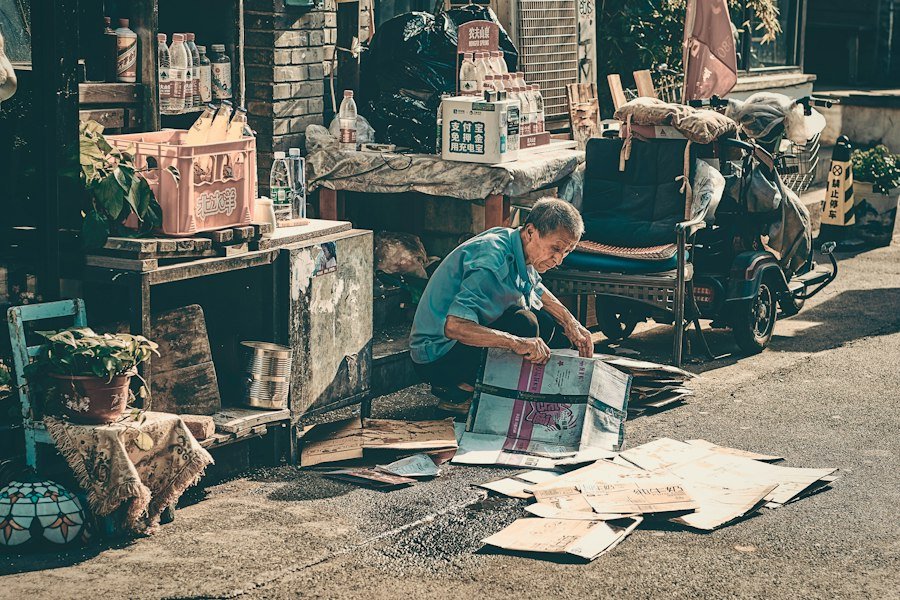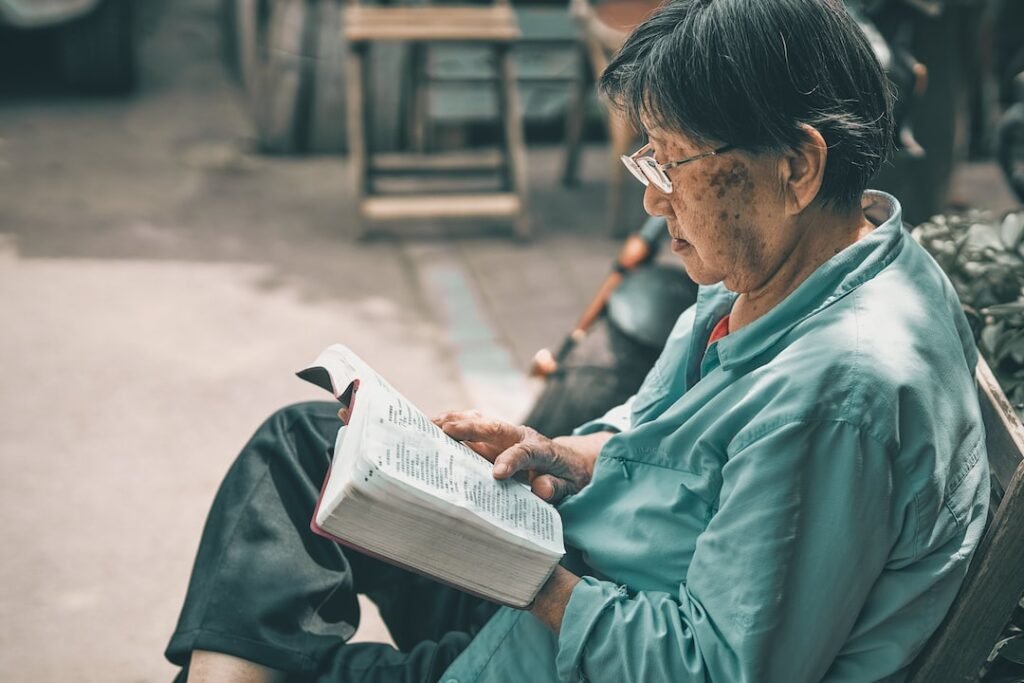Adjectives are an essential part of any language, including Chinese. In Chinese, adjectives are used to describe people, objects, places, and more. They provide additional information and help to paint a more vivid picture in conversations or written texts. Learning adjectives in Chinese is crucial for effective communication and expressing oneself accurately.
Table of Contents
ToggleKey Takeaways
- Adjectives are an important part of the Chinese language.
- Common adjectives for describing people include tall, short, fat, thin, and handsome/beautiful.
- Adjectives for describing personality traits include kind, honest, funny, and stubborn.
- Adjectives for describing physical appearance include round, square, long, and short.
- Adjectives for describing clothing and fashion include stylish, trendy, and comfortable.
Common Adjectives for Describing People
When it comes to describing people in Chinese, there are several common adjectives that are frequently used. Some of these adjectives include “高” (gāo) which means tall, “矮” (ǎi) which means short, “漂亮” (piàoliang) which means beautiful, “帅” (shuài) which means handsome, “聪明” (cōngming) which means intelligent, and “可爱” (kě’ài) which means cute.
For example, you can use these adjectives in sentences like:
– 他很高。(Tā hěn gāo.) – He is tall.
– 她很漂亮。(Tā hěn piàoliang.) – She is beautiful.
– 他很聪明。(Tā hěn cōngming.) – He is intelligent.
Adjectives for Describing Personality Traits
Describing personality traits is another important aspect of using adjectives in Chinese. Some common adjectives used for this purpose include “友好” (yǒuhǎo) which means friendly, “害羞” (hàixiū) which means shy, “开朗” (kāilǎng) which means outgoing, “有趣” (yǒuqù) which means interesting, “认真” (rènzhēn) which means serious, and “懒惰” (lǎnduò) which means lazy.
For example, you can use these adjectives in sentences like:
– 她很友好。(Tā hěn yǒuhǎo.) – She is friendly.
– 他很害羞。(Tā hěn hàixiū.) – He is shy.
– 她很开朗。(Tā hěn kāilǎng.) – She is outgoing.
Adjectives for Describing Physical Appearance
Describing physical appearance is another common use of adjectives in Chinese. Some adjectives used for this purpose include “胖” (pàng) which means fat, “瘦” (shòu) which means thin, “高大” (gāodà) which means tall and big, “矮小” (ǎixiǎo) which means short and small, “漂亮” (piàoliang) which means beautiful, and “丑” (chǒu) which means ugly.
For example, you can use these adjectives in sentences like:
– 他很胖。(Tā hěn pàng.) – He is fat.
– 她很瘦。(Tā hěn shòu.) – She is thin.
– 他很高大。(Tā hěn gāodà.) – He is tall and big.
Adjectives for Describing Clothing and Fashion
When it comes to describing clothing and fashion in Chinese, there are several adjectives that can be used. Some of these adjectives include “时尚” (shíshàng) which means fashionable, “舒适” (shūshì) which means comfortable, “漂亮” (piàoliang) which means beautiful, “简单” (jiǎndān) which means simple, “华丽” (huálì) which means gorgeous, and “休闲” (xiūxián) which means casual.
For example, you can use these adjectives in sentences like:
– 这件衣服很时尚。(Zhè jiàn yīfú hěn shíshàng.) – This clothing is fashionable.
– 这双鞋很舒适。(Zhè shuāng xié hěn shūshì.) – These shoes are comfortable.
– 这条裙子很漂亮。(Zhè tiáo qúnzi hěn piàoliang.) – This dress is beautiful.
Adjectives for Describing Food and Beverages

Describing food and beverages is an important aspect of Chinese culture, and there are several adjectives that can be used for this purpose. Some of these adjectives include “美味” (měiwèi) which means delicious, “辣” (là) which means spicy, “酸” (suān) which means sour, “甜” (tián) which means sweet, “咸” (xián) which means salty, and “清淡” (qīngdàn) which means light.
For example, you can use these adjectives in sentences like:
– 这道菜很美味。(Zhè dào cài hěn měiwè) – This dish is delicious.
– 这个汤很辣。(Zhè gè tāng hěn là.) – This soup is spicy.
– 这杯果汁很甜。(Zhè bēi guǒzhī hěn tián.) – This glass of juice is sweet.
Adjectives for Describing Places and Landscapes
Describing places and landscapes is another common use of adjectives in Chinese. Some adjectives used for this purpose include “美丽” (měilì) which means beautiful, “宏伟” (hóngwěi) which means magnificent, “干净” (gānjìng) which means clean, “拥挤” (yōngjǐ) which means crowded, “宁静” (níngjìng) which means peaceful, and “繁忙” (fánmáng) which means busy.
For example, you can use these adjectives in sentences like:
– 这个城市很美丽。(Zhè gè chéngshì hěn měilì.) – This city is beautiful.
– 这座建筑很宏伟。(Zhè zuò jiànzhú hěn hóngwě) – This building is magnificent.
– 这个公园很干净。(Zhè gè gōngyuán hěn gānjìng.) – This park is clean.
Adjectives for Describing Weather and Seasons
Describing weather and seasons is a common topic of conversation, and there are several adjectives that can be used for this purpose in Chinese. Some of these adjectives include “晴朗” (qínglǎng) which means sunny, “阴天” (yīntiān) which means cloudy, “炎热” (yánrè) which means hot, “寒冷” (hánlěng) which means cold, “潮湿” (cháoshī) which means humid, and “凉爽” (liángshuǎng) which means cool.
For example, you can use these adjectives in sentences like:
– 今天天气很晴朗。(Jīntiān tiānqì hěn qínglǎng.) – Today’s weather is sunny.
– 明天会是阴天。(Míngtiān huì shì yīntiān.) – Tomorrow will be cloudy.
– 夏天很炎热。(Xiàtiān hěn yánrè.) – Summer is hot.
Adjectives for Describing Emotions and Feelings
Describing emotions and feelings is an important aspect of communication, and there are several adjectives that can be used for this purpose in Chinese. Some of these adjectives include “开心” (kāixīn) which means happy, “伤心” (shāngxīn) which means sad, “紧张” (jǐnzhāng) which means nervous, “放松” (fàngsōng) which means relaxed, “满意” (mǎnyì) which means satisfied, and “失望” (shīwàng) which means disappointed.
For example, you can use these adjectives in sentences like:
– 我很开心。(Wǒ hěn kāixīn.) – I am happy.
– 她很伤心。(Tā hěn shāngxīn.) – She is sad.
– 我感到很紧张。(Wǒ gǎndào hěn jǐnzhāng.) – I feel nervous.
Advanced Adjectives for Describing Abstract Concepts
In addition to the basic adjectives, there are also advanced adjectives that can be used to describe abstract concepts in Chinese. Some of these adjectives include “独特” (dútè) which means unique, “复杂” (fùzá) which means complex, “深刻” (shēnkè) which means profound, “广泛” (guǎngfàn) which means extensive, “重要” (zhòngyào) which means important, and “有趣” (yǒuqù) which means interesting.
For example, you can use these adjectives in sentences like:
– 这个观点很独特。(Zhè gè guāndiǎn hěn dútè.) – This viewpoint is unique.
– 这个问题很复杂。(Zhè gè wèntí hěn fùzá.) – This problem is complex.
– 这个理论很深刻。(Zhè gè lǐlùn hěn shēnkè.) – This theory is profound.
Learning adjectives in Chinese is crucial for effective communication and expressing oneself accurately. Adjectives are used to describe people, objects, places, and more, providing additional information and painting a more vivid picture in conversations or written texts. Whether it’s describing people, personality traits, physical appearance, clothing and fashion, food and beverages, places and landscapes, weather and seasons, emotions and feelings, or abstract concepts, adjectives play a vital role in the Chinese language.
To become proficient in using adjectives, it is important to practice incorporating them into daily conversations. By doing so, learners can enhance their vocabulary and improve their ability to express themselves in a more nuanced and descriptive manner. So, don’t hesitate to start using adjectives in your Chinese conversations and enjoy the richness they bring to your language skills.








